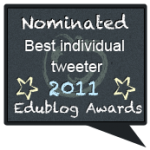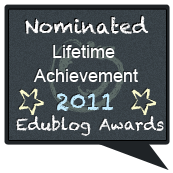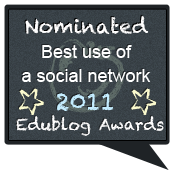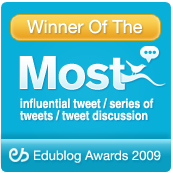For several years, I have been involved with social media as an educator — asking questions and sometimes providing answers with other educators. I was once asked for my special power. My answer: “My ability to connect the dots.”
It enables me to look smart without knowing the answer to the question, because I connect people with questions to those with answers. That is one of the advantages of being a connected educator. Social media is a great vehicle for these connections because of the vast variety of collaboration-minded educators who populate it and their willingness to help. It’s a teacher thing. What I like the best about social media is that ideas are considered on their own merit, without regard to the title of the person offering them. Administrators, teachers and students are all equals.
Some of the brightest educators I have known over my 40-year career are people I met through social media. Without Twitter, LinkedIn, Facebook, Google+ and others, I would not be connected to as many educators as I am. At best, my personal learning network would consist of teachers in my district and those I connected with at whatever conference I was lucky enough to attend. If I did not meet with them in person, I would need to call them. With social media, however, my connections are global and endless. I exchange ideas with educators worldwide. I have seen my blog posts translated into other languages.
I find that one of the big myths of social media is that it doesn’t allow for strong relationships. I have found the opposite to be true. The strongest relationships I have had with educators have all been formed through social media. I have opened my home, as people have opened theirs for me, as a result of our social media connections. Authors are more than pictures on a book sleeve to me. I exchange ideas with many all of the time. My ideas appear in their books. All of this could not happen with the frequency it does without social media.
Now, I have been offered a unique position. I am able to call on many of those connected educators to share their ideas with more educators. These ideas will be appear on SmartBrief’s SmartBlog on Education. These are educators talking about education. Many have their own blogs and are on Twitter or LinkedIn, and I would encourage all educators to follow them. These are our education thought leaders. Their perspectives are a welcome refuge from politicians and business people who have dominated the national discussion on education for the past several years.
It is our intention to show you what can be accomplished in education with the latest methodology, as well as the newest technology for learning. This will be an educator’s perspective, delivered to other educators and addressing some of the oldest needs of our education system. It is a great opportunity to strengthen the educator’s voice in the national conversation on education.
SmartBlog on Education has a potential readership of almost three-quarters of a million educators. Guests whom we hope to provide represent the best thought leaders in education that social media has to offer. Your support and comments will be an important element in guiding us.
Do you read SmartBrief’s roster of free, concise, daily e-mail newsletters for education professionals? Sign up!











